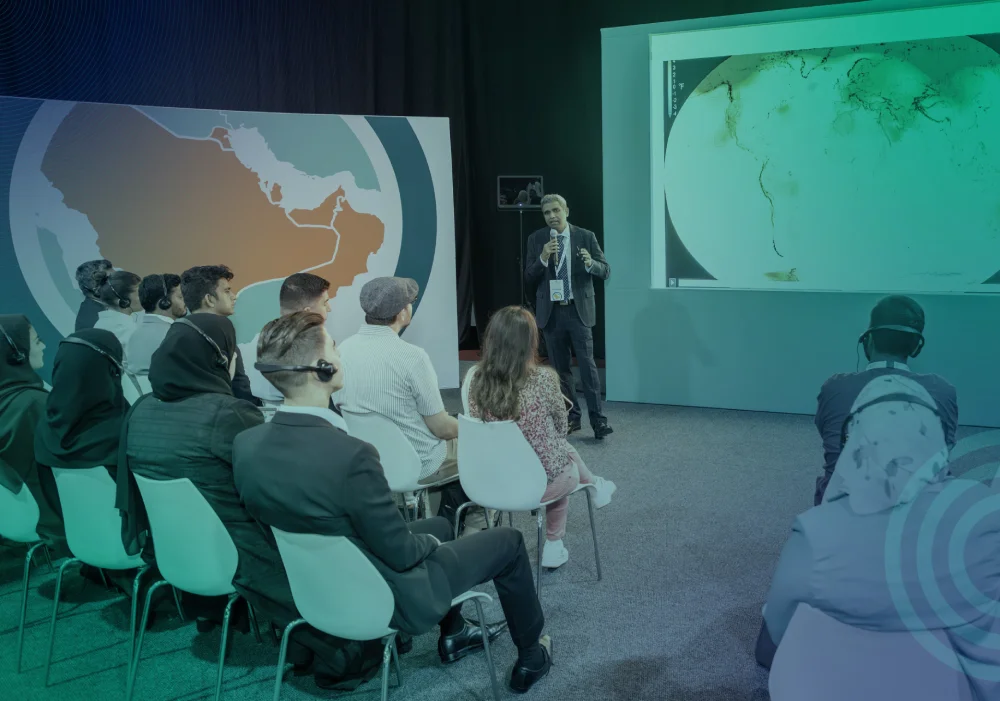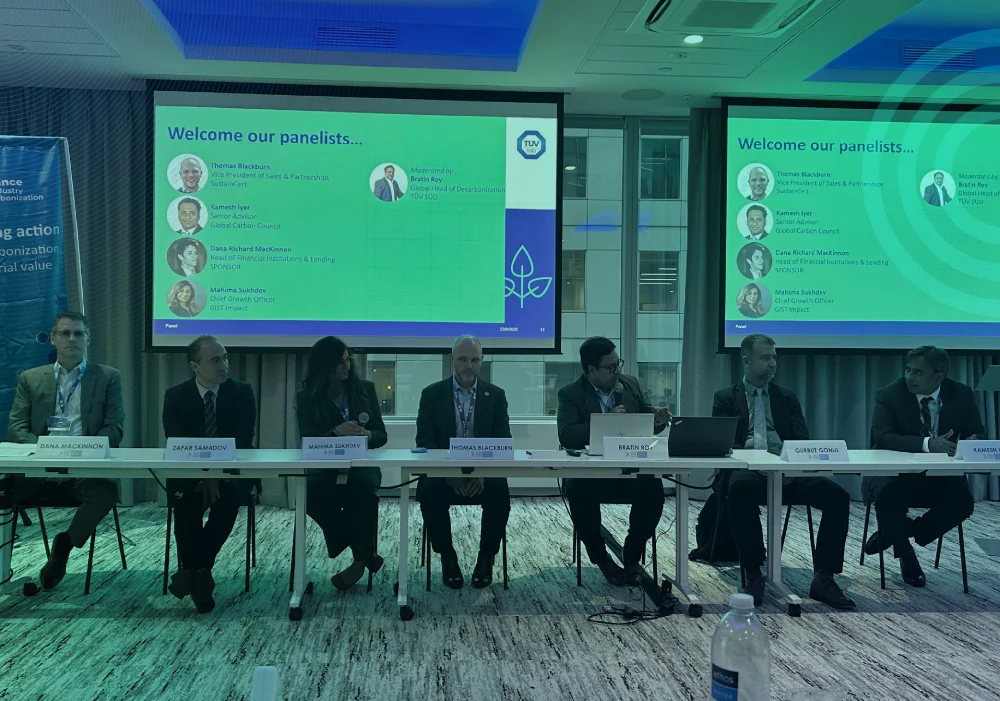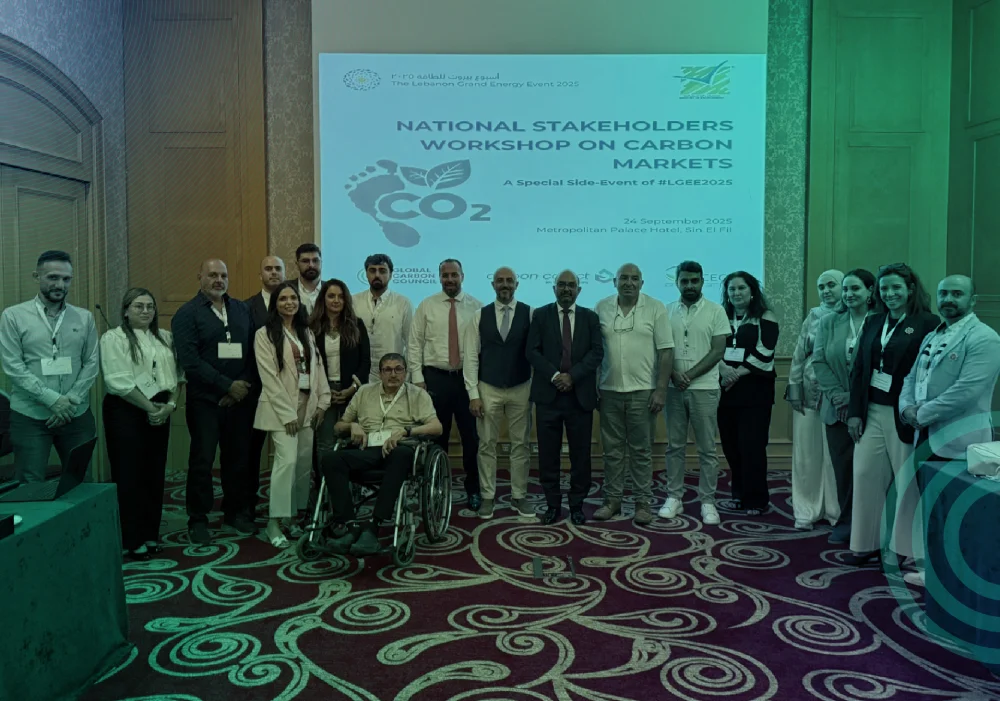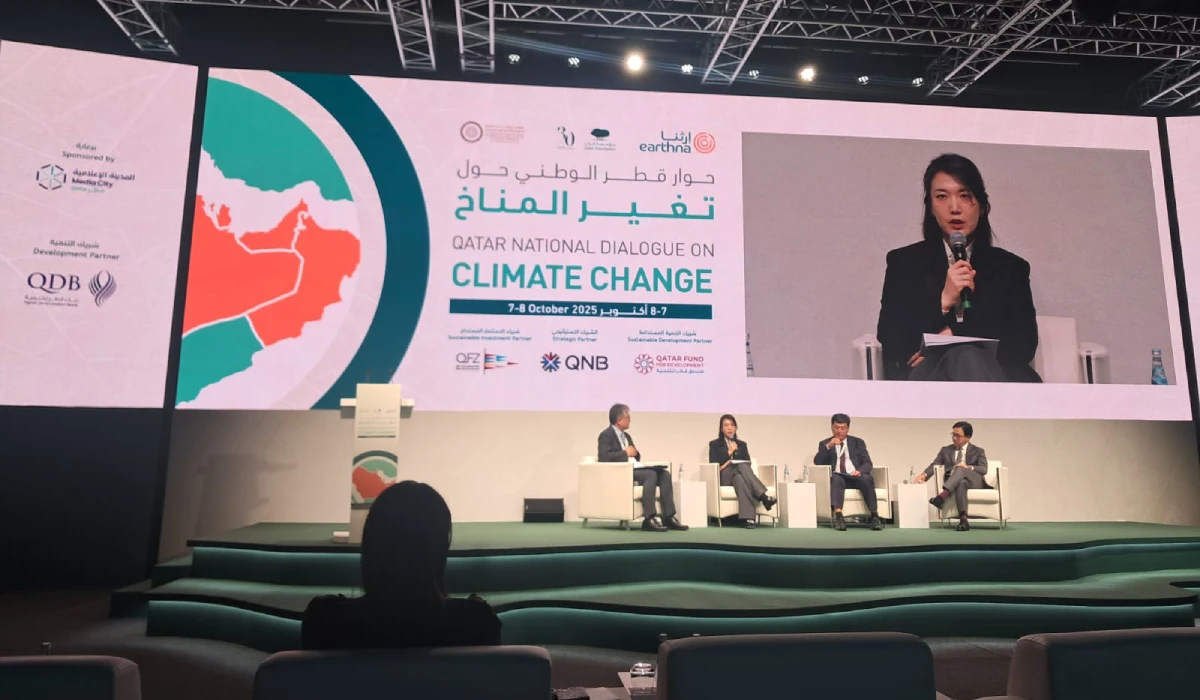
At the Qatar National Dialogue on Climate Change (QNDCC) 2025, Dr. Sue Kyoung (Jessie) Lee, Assistant Director, NbS at the Global Carbon Council (GCC), highlighted how technology, innovation, and partnerships are driving regional climate action across the MENA region.
Dr. Lee emphasized that MENA is a region where carbon reduction becomes a key opportunity for sustainable development. She showcased GCC as a platform enabling countries like Korea to contribute to sustainability efforts in Qatar and the wider region, while converting verified emission reductions into tradable carbon credits.
During the session, participants heard from Samsung C&T, which has secured an energy project funded by the Qatari government, and Haejoo X, a Korean Australian company leading the large-scale Reef marine restoration project in Dubai, supported by the UAE government and Emirates Airline. These examples highlighted how international collaboration and GCC’s carbon finance solutions can accelerate impactful climate action.
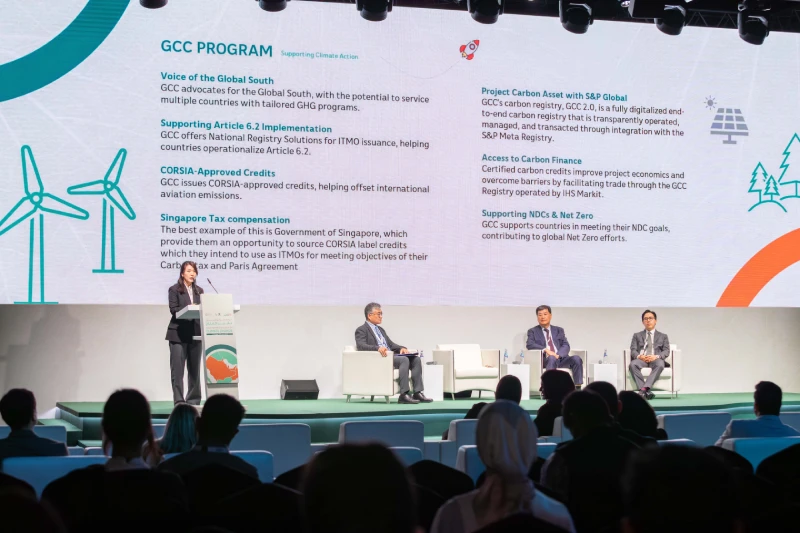
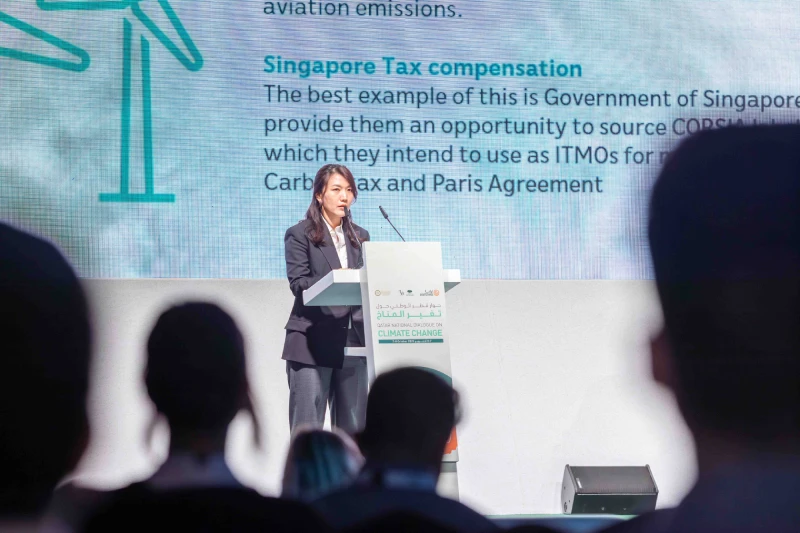
Dr. Lee also detailed GCC’s Program 2.0, featuring a fully digitalized, end-to-end carbon registry integrated with the S&P Meta Registry, ensuring transparency, traceability, and credibility in the issuance, transfer, and retirement of carbon credits. Certified credits enhance project economics, facilitate trade through the GCC Registry operated by IHS Markit, and support the operationalization of NDCs and Net Zero commitments.
She further highlighted GCC’s role as a voice of the Global South, providing tailored GHG programs for multiple countries, supporting Article 6.2 implementation for ITMO issuance, and issuing CORSIA-approved credits — with Singapore as a prime example of using credits to meet carbon tax and Paris Agreement objectives.
Addressing regional challenges such as high costs and slow approval processes, Dr. Lee underscored that GCC provides regionally accessible carbon certification, officially recognized under CORSIA, aligned with Paris Agreement Article 6, and contributing to UN SDGs.
The session reinforced GCC’s ability to bridge technology, finance, and policy, enabling governments and corporate partners to scale sustainability initiatives, access carbon finance, and generate high-integrity, marketable carbon credits, driving measurable climate action across MENA ahead of QNDCC 2026.
The session highlighted how technology leaders such as Samsung C&T and Haejoo X are implementing concrete carbon reduction initiatives across MENA—spanning both energy and nature-based sectors. These actions exemplify the creation of high-integrity emission reductions that advance global climate goals, enabled through the Global Carbon Council (GCC), the only internationally accredited carbon program originating from the Global South. By integrating technology and market mechanisms under globally recognized standards, GCC is positioned as a central platform driving scalable, verifiable climate solutions in the region. As the concluding session of QNDCC 2025, it set the foundation for a more structured and collaborative dialogue to be jointly led by Qatar and Korea at QNDCC 2026.

